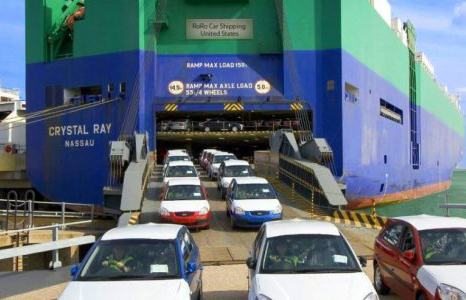In the bustling streets of Lomé, Togo, Jean Cyrille Agbou, an IT specialist, becomes a treasure hunter twice a week in a vast flea market spanning 13,000 square meters. This marketplace, facilitated by Lomé's autonomous port, has become a thriving hub for second-hand goods, attracting residents seeking budget-friendly deals.
The phenomenon is not just a local pastime but a significant economic driver, closely tied to Togo's maritime economy and an enduring preference for used vehicles. Explore the intricacies of Togo's flourishing second-hand auto market and the factors contributing to its sustained success.
The Lure of Lomé's Flea Market: A Second-Hand Wonderland
Jean Cyrille Agbou navigates the expansive alleys of Lomé's flea market, a platform spanning three football fields, in pursuit of diverse bargains. The market caters to a broad spectrum of needs, from computers and electronics to appliances and furniture.
The port-provided space has become a pivotal venue for exchanging second-hand goods, creating a vibrant ecosystem driven by both sellers and buyers.
Togo's Maritime Economy and the Second-Hand Connection
Approximately 25% of Togo's maritime economy is anchored in importing second-hand goods, predominantly from Europe. This reliance on used items extends beyond occasional purchases, with 9 out of 10 Lomé residents engaging in this market multiple times a year. Despite the challenges posed by the COVID-19 pandemic, this cultural habit persists, underscoring the resilience and significance of the second-hand market in Togo.
Used-Car Parks: The Pulsating Heart of Togo's Second-Hand Market
Editchao Bawabadi, managing a used-car park in central Lomé, emphasises the pivotal role of the used-car market in Togo's economic landscape. With around 34 similar car parks in Lomé, the demand for second-hand vehicles is substantial. These parks facilitate the sale of up to 18,000 vehicles, with approximately 4,000 exported to Sahel countries. Despite stagnation in new car sales, the second-hand market continues to thrive.
Economics of Choice: Affordability and Purchasing Power
Togo's second-hand market's success is intricately tied to its residents' purchasing power. Economist Leleng Lebalo sheds light on the economic factors, citing a 2019 World Bank report indicating an annual income of around 400,000 FCFA for Togolese individuals.
This classification as a low-income country prompts residents to seek affordable alternatives, especially regarding vehicles. Additionally, prohibitive costs associated with car loans, with interest rates ranging from 10 to 15%, drive Togolese consumers towards the more financially feasible option of second-hand vehicles.
Resilience Amidst Challenges
While new car sales may experience stagnation, the second-hand vehicle market remains robust. In the first quarter of 2020 alone, Togo imported $19 million worth of second-hand vehicles, as reported by the Togolese Institute of Statistics and Economic Studies. This resilience showcases the enduring appeal of affordable rides in Togo, where the second-hand market continues to meet the transportation needs of the population.
Conclusion
Togo's affinity for second-hand goods, particularly vehicles, is deeply ingrained in its culture and economic reality. The vibrant flea market in Lomé and the bustling used-car parks exemplify a dynamic marketplace driven by affordability and pragmatism. As Togolese residents continue to seek the best deals, the second-hand auto market stands as a testament to the resilience of an industry deeply rooted in the fabric of daily life.





